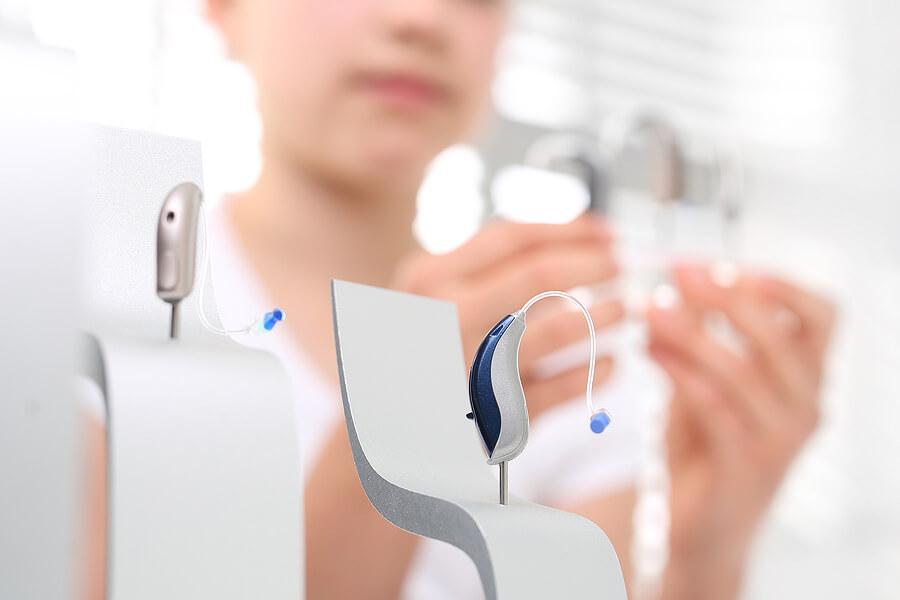Hearing aids are incredible devices that have transformed the lives of millions of people around the world. Yet, despite their proven benefits, misconceptions about hearing aids still persist. These misconceptions can deter people from seeking the help they need to address their hearing loss. Here are 10 common misconceptions about hearing aids.
1. Hearing Aids Are Only for Older Adults
One of the most pervasive misconceptions is that hearing aids are only for seniors. In reality, hearing loss can affect people of all ages. From children to young adults to older adults, anyone experiencing hearing difficulties can benefit from hearing aids. We have a range of hearing aids to suit every age and hearing need.
2. Hearing Aids Make You Look Old
Some individuals resist getting hearing aids because they believe these devices make them appear older. However, modern hearing aids are sleek, discreet, and often nearly invisible. They are designed to blend seamlessly into your daily life without drawing attention.
3. Hearing Aids Restore Perfect Hearing
While hearing aids are incredibly effective in improving hearing, they don’t provide perfect hearing. They amplify sounds and make them more audible, but they can’t replicate natural hearing. Nevertheless, they can significantly enhance your quality of life by allowing you to engage more fully in conversations and enjoy all your favorite moments.
4. You Only Need One Hearing Aid If You Have Hearing Loss in One Ear
It’s a common misconception that if you have hearing loss in one ear, you only need one hearing aid. However, using two hearing aids is often recommended, even if the hearing loss is single-sided. Wearing two hearing aids can provide better sound localization, clearer speech understanding in noisy environments, and a more balanced listening experience.
5. Hearing Aids Are Unaffordable
Cost is a significant concern for many people considering hearing aids. While hearing aids can be an investment, it’s important to recognize that there is a wide range of options available, with varying price points. Additionally, some insurance plans and assistance programs may cover part or all of the costs.
6. Hearing Aids Can’t Help Severe Hearing Loss
Another misconception is that hearing aids are only suitable for mild to moderate hearing loss. Modern hearing aid technology can effectively address severe to profound hearing loss. Audiologists can recommend and program hearing aids to meet the specific needs of individuals with severe hearing loss.
7. Hearing Aids Are Uncomfortable
Older hearing aid models may not have always been the most comfortable. However, today’s hearing aids are designed with user comfort in mind. They come in various styles, including behind-the-ear, in-the-ear, and even completely-in-canal options, all aimed at providing a comfortable fit tailored to your preferences.
8. You Can Buy Hearing Aids Online Without Professional Guidance
While online shopping is convenient for many products, hearing aids are not one of them. Purchasing hearing aids without professional guidance can lead to hearing aids that don’t fit your hearing needs. Hearing aids should be selected and fitted by an audiologist or hearing specialist who can customize them to your specific hearing needs.
9. Hearing Aids Are Not Worth the Trouble
Some individuals may hesitate to get hearing aids because they believe the effort required to adapt to them is not worth the benefits. In reality, the benefits of improved hearing are substantial. Hearing aids can enhance your social interactions, mental health, and overall quality of life.
10. Hearing Aids Are Noisy and Whistle Constantly
Older hearing aid models were prone to feedback and whistling sounds. However, modern hearing aids are equipped with advanced feedback cancellation technology, greatly reducing the likelihood of such issues. Today’s hearing aids are designed for optimal performance and comfort.
The Truth About Hearing Aids
Hearing aids are remarkable devices with the power to transform your life by improving your hearing and overall well-being. Don’t let myths and misunderstandings hold you back from seeking help for your hearing loss.
If you or someone you know is experiencing hearing difficulties, book a consultation! We’re here to offer expert guidance, recommend the most suitable hearing aids, and provide ongoing hearing support. Remember, hearing aids are not just about hearing; they’re about reconnecting with the world around you and enjoying a richer, more fulfilling life.

